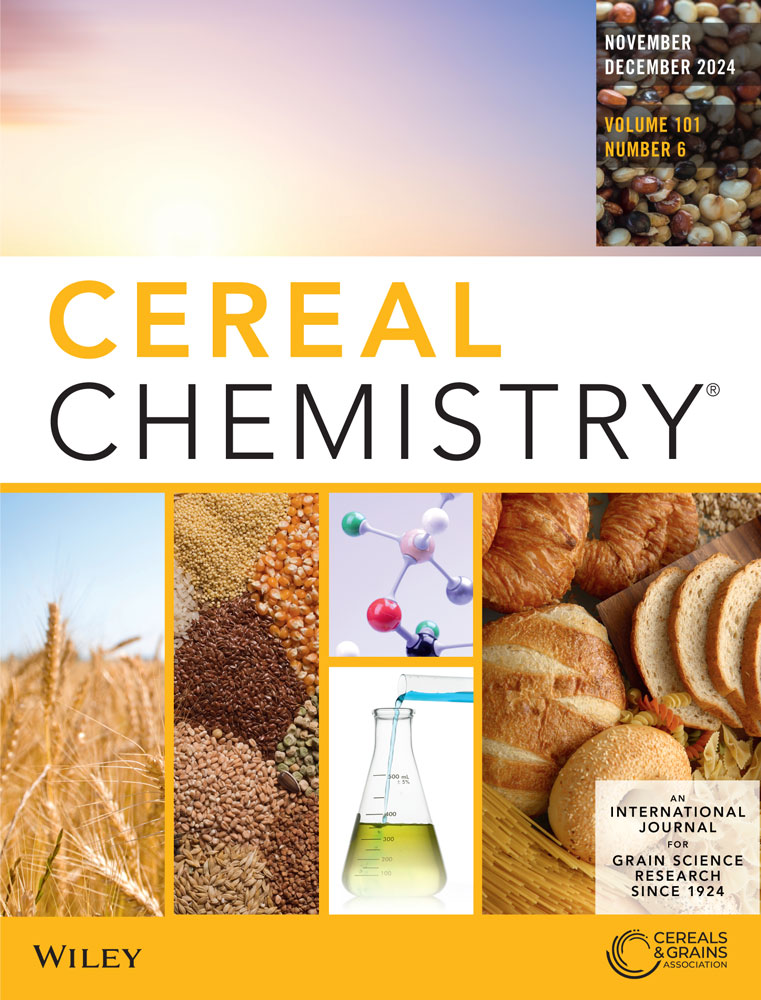Predicting Hand Folded Japanese Sponge Cake Quality Using Rapid Visco Analyzer Flour Pasting Properties
Abstract
Background and Objectives
The objective of this study was to evaluate a series of Rapid Visco Analyzer (RVA) methods for their ability to produce results that were predictive of hand folded Japanese sponge cake (JSC) quality. Two solvents (water and 50% [w/w] aqueous sucrose) and two temperature profiles (Standard 1 [STD 1] and an internal cake temperature profile) were selected to run across a set of flour samples from two crop years. The RVA results were previously analyzed (and published) for their ability to produce results that were predictive of mechanically folded JSC. Due to the continued use of the hand fold method, there was a need to understand how these RVA methods produced results that were predictive of hand folded JSC quality. Hand folded JSC is prepared by manually folding the flour into the egg sugar mixture using a wooden paddle, while the mechanical folding method utilizes a KitchenAid with attached paddle.
Findings
Water, 5% lactic acid, 5% sodium carbonate, and 50% sucrose SRC solvents showed no significant correlations with JSC quality. RVA viscosity results from both profiles using water were generally not significantly correlated with JSC quality while the sucrose solvent batter pasting viscosity (BPV) was significantly correlated. RVA BPV run with the internal cake temperature profile using the sucrose solvent showed significant correlations with hand folded JSC volume (r = 0.76, p ≤ 0.05), firmness (r = −0.89, p ≤ 0.01), and overall score (r = 0.79, p ≤ 0.01).
Conclusions
The RVA BPV results showed that a 50% (w/w) sucrose solvent, when compared to water, could more accurately be used to predict and screen for JSC quality outcomes. The internal cake temperature profile BPV was better correlated with hand folded JSC quality than the STD 1 profile when using sucrose solvent.
Significance and Novelty
This research identified that the RVA BPV employing the internal cake temperature profile, and a 50% sucrose solvent could estimate hand folded JSC quality using less flour and taking less time than a bake test.

 求助内容:
求助内容: 应助结果提醒方式:
应助结果提醒方式:


